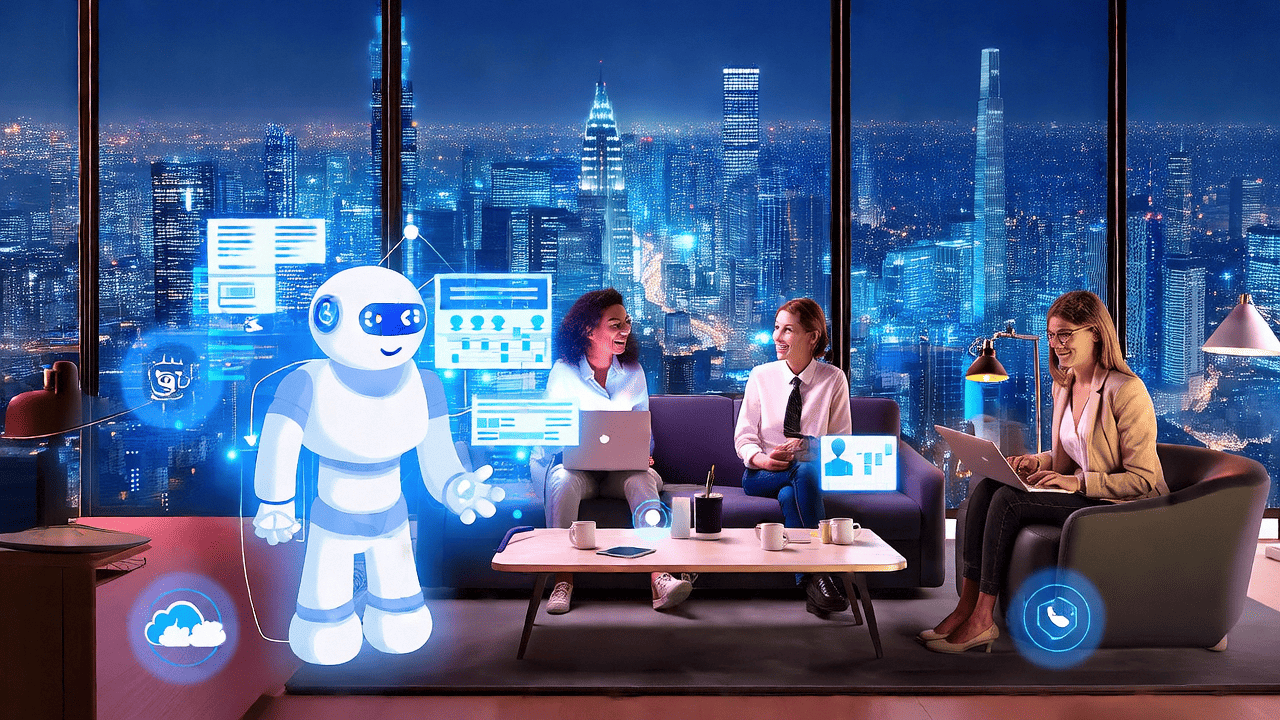Exploring the New Era of AI Customer Acquisition: When AI Learns Empathy, B2B Marketing in Foreign Trade is Transformed
As AI technology advances, AI customer acquisition has become a significant trend in the B2B sector of foreign trade. This article will explore how AI can enhance its efficiency in acquiring customers by learning human emotions and analyze the impact on the foreign trade industry. It also examines specific applications of AI in platforms like LinkedIn for resource acquisition.

AI Customer Acquisition: Transitioning from Data-driven to Emotion-driven
AI customer acquisition refers to the process of using artificial intelligence algorithms to automatically identify potential customers and deliver precise marketing. Traditional methods relied heavily on big data analysis and machine learning models that could process vast amounts of user behavior data to predict likely buyers. However, as technology progresses, relying solely on data analytics no longer meets the increasingly complex market demands. To better understand customer needs and build deeper trust relationships, AI is moving towards emotional intelligence . For instance, Yann LeCun, an AI research leader at Meta, mentioned that future AI should have some 'empathy' ability to better grasp users' intentions and emotional states. This shift not only helps increase conversion rates but also provides a more personalized service experience.
LinkedIn Customers: An Essential Tool for AI Marketing on Social Platforms
LinkedIn, as a professional social network, plays a crucial role in B2B marketing. It gathers numerous business professionals, making it an ideal place to find high-quality potential customers. For companies looking to leverage AI for efficient customer acquisition, LinkedIn offers a prime opportunity. By utilizing natural language processing (NLP) and image recognition technologies, AI can automatically filter out suitable target audiences and customize marketing messages based on their professional backgrounds, interests, and more. Moreover, AI can monitor user interactions in real time, adjusting strategies promptly for optimal results. While AI greatly simplifies workflows, it cannot entirely replace human judgment. Therefore, businesses implementing such projects should ensure sufficient expertise support to avoid overlooking critical details due to over-reliance on automation.
Next-generation AI Assistants: A Helpful Companion Simplifying Life and Work
Imagine having a friend who's always online, understands your thoughts, and is ready to solve problems anytime; wouldn't that be incredibly convenient? That's one of the goals next-generation AI assistants aim to achieve. According to Yann LeCun, besides possessing strong computational power and broad knowledge bases, future AI must learn to think like humans – meaning they need some level of emotional cognitive ability. This implies they can not only answer questions or perform tasks but also perceive changes in user moods and respond appropriately. For example, when facing setbacks at work, AI might encourage you by saying, "Don't worry, let's find a solution together!" And during leisure time, suggest ways to relax. Such interaction makes people feel more comfortable and promotes work efficiency .
Open AI Systems: Fostering Fair Competition and Development
Although a few large tech companies currently hold the most advanced AI technologies, this doesn't mean others lack opportunities to participate in this promising industry. In fact, there are increasing calls for building a more open and transparent AI ecosystem so more participants can benefit. On one hand, this encourages innovation vitality by breaking down barriers among existing giants; on the other hand, it effectively prevents certain enterprises from abusing market advantages and harming consumer interests. Measures include establishing unified standards, strengthening intellectual property protection, and encouraging cross-industry collaboration. Ultimately, only within a healthy competitive environment can the AI industry develop sustainably, achieving a win-win situation.
Preventing Monopolies: Building a Diversified AI Ecosystem
In recent years, concerns about potential ethical issues brought by AI have garnered considerable attention. One of the most prominent issues is centralized power. If a few major companies control too many key resources and technologies, they may form de facto monopolies, which would be detrimental to long-term industry development. To address this, governments and industry associations should take active measures, such as issuing policies to restrict unfair competition and supporting small and medium-sized enterprises in overcoming funding shortages and technical bottlenecks. Public participation in discussions is also essential to jointly promote a diversified, inclusive, fair, and just AI ecosystem. Everyone should realize they are both rule-makers and followers, working together to create a positive atmosphere for industry development .
In summary, AI customer acquisition is undergoing a significant transition from being data-driven to emotion-driven, supported by professional social platforms like LinkedIn. Meanwhile, as next-generation AI assistants enter our daily lives, a more open and vibrant AI era is quietly arriving. To ensure the healthy development of this emerging field, we must emphasize preventing monopolies and strive to build a diversified and sustainable AI ecosystem.


